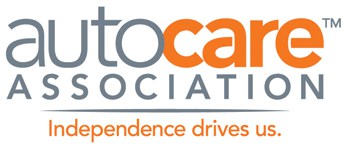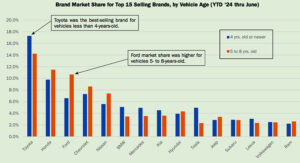“ASA and SCRS, who did not sign or support the 2014 MOU, represent a small fraction of the independent repair market and do not speak for the automotive aftermarket,” states Auto Care Association
Editor’s Note: The following is Auto Care Association’s response, in its entirety and verbatim, to today’s announcement by the above noted industry groups.

Bethesda, Md.—Auto Care Association objects to the so-called right-to-repair pact between ASA, SCRS and the Alliance for Automotive Innovation. Auto Care Association, an original signatory to the 2014 Memorandum of Understanding, was not consulted about, was not a party to and does not support the agreement. ASA and SCRS, who did not sign or support the 2014 MOU, represent a small fraction of the independent repair market and do not speak for the automotive aftermarket. Auto Care Association, on the other hand, is a national trade association representing over 536,000 companies and affiliates that manufacture, distribute and sell motor vehicle parts, accessories, services, tools, equipment, materials, and supplies. Auto Care Association serves the entire supply chain of the automotive aftermarket for the nation’s 292 million registered motor vehicles. Those businesses include over 280,000 repair facilities and 915,000 technicians nationwide.
The agreement between the Alliance, ASA and SCRS is a thinly veiled response by the automotive OEMs to HR 906: The REPAIR Act. While the agreement purports to be relevant, all it does is affirm the 2014 Memorandum of Understanding rather than implement a meaningful solution to preserve the entire automotive aftermarket and the competition and consumer choice that it creates. The agreement between the Alliance, ASA and SCRS is not only designed to create confusion, but also has numerous flaws:
- The Agreement is non-binding. There is no way to force OEM participation or to enforce OEM compliance.
- The Agreement does not cover all automakers (e.g. Tesla) and there is no requirement for new OEMs to join.
- The Agreement does not obligate OEMs to provide vehicle owners or aftermarket direct access to telematically-generated repair and maintenance data; rather the OEMs have agreed to make repair and maintenance data available through OEM controlled systems and tools (access to data “that auto manufacturers make available to authorized dealer networks”).
- Regarding telematics and the wireless transmission of vehicle repair and maintenance data, the OEMs only agree to give access (again, not direct access) if the data “is not otherwise available” through the OBDII port. This means an independent shop could be forced to subscribe to multiple third-party tools to get access to telematics data, rather than through a single direct source.
- The Agreement also fails to address the safety and security of the wirelessly transmitted vehicle data.
The REPAIR Act is a comprehensive and critical piece of federal legislation that preserves competition, affordability, accessibility, and a vibrant supply chain.







Comments are closed.